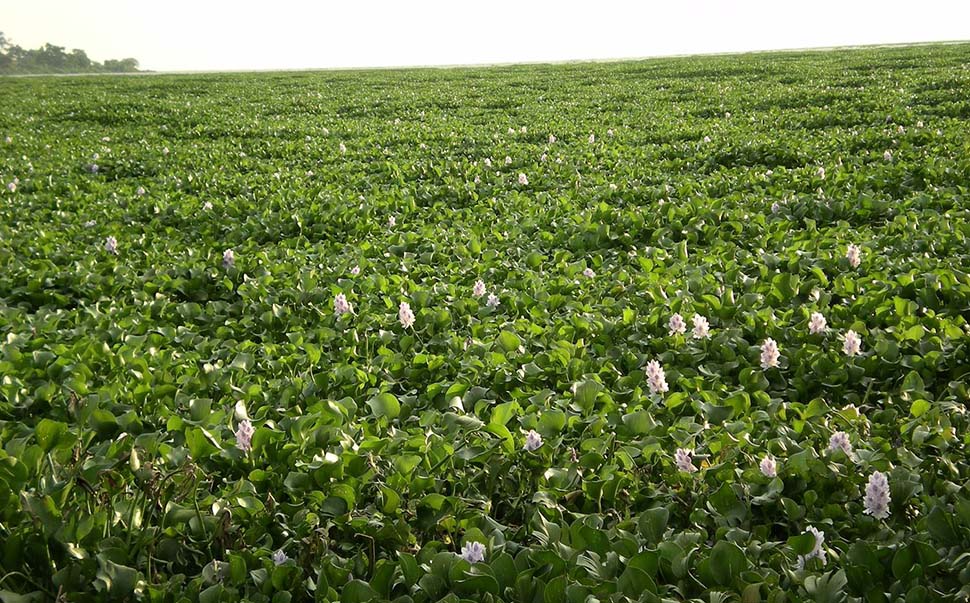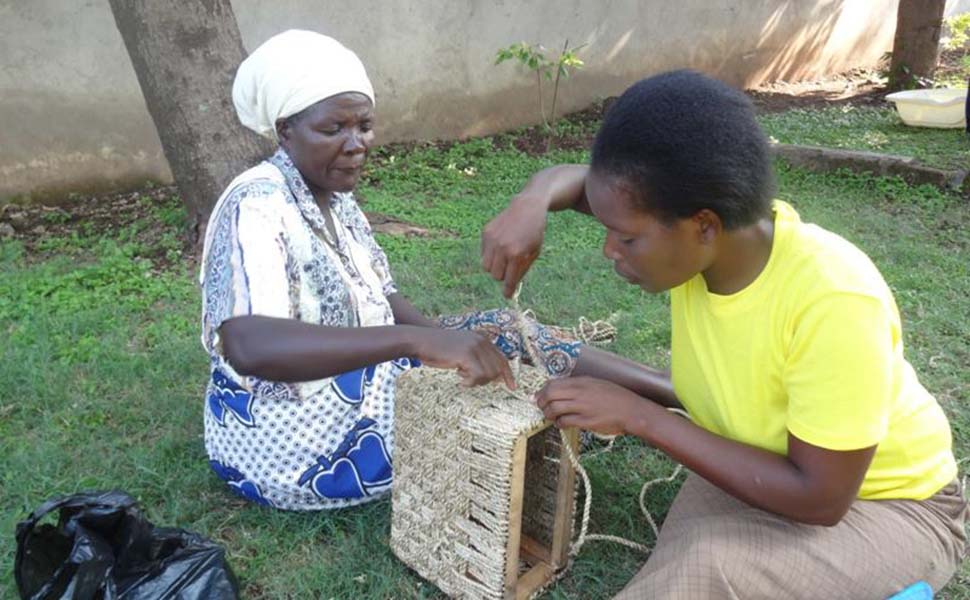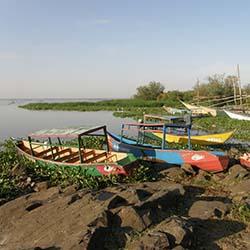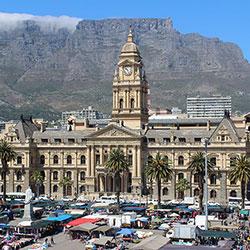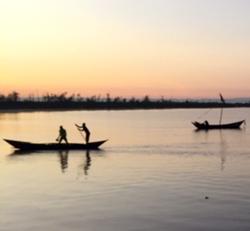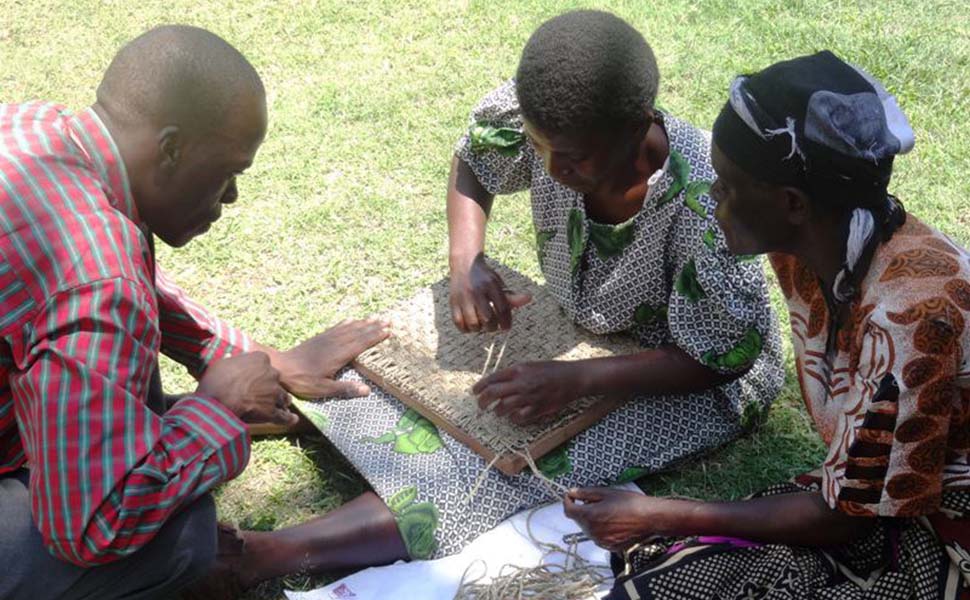
From weed to product - Training program in Kisumu
Twenty residents from Dunga Beach, Kisumu have just started a fifteen day long training program on how to use water hyacinths as a resource rather than seeing it as an environmental and social problem. They will hopefully achieve what several organizations have failed to when spending millions of Kenyan shillings trying to eradicate water hyacinths using different methods and approaches.
- I have hated this weed since I realized it in the lake, but today I have found out that bad can be turned to great. The products we are making looks great but my worry is where and if we will sell them, says Kennedy Onyango one of the participants.
The program will train the participants on how to use water hyacinths as a resource, converting it into usable house hold products. They will learn about weaving, paper making, branding, product development and marketing. The trained members of the community shall eventually be used to train more people to pass the knowledge on and increase the impact on water hyacinth utilization.
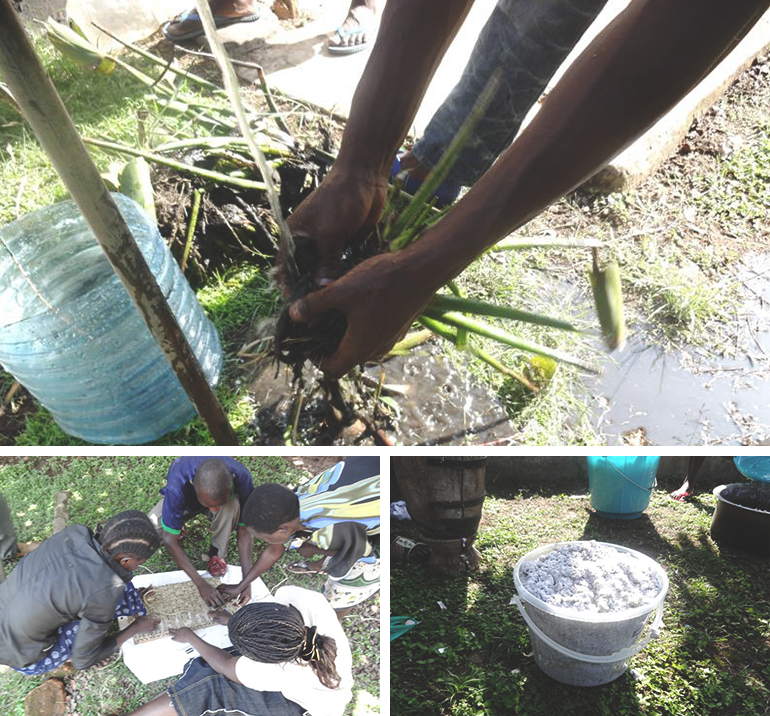
Mama Jane Nundu had high expectations before starting the program:
- I have been selling Omena (a popular tiny fish found in the lake) to ensure that my children have something to eat on the table. But we’ve been encountering many challenges that have made life so hard, for example when the lake is closed by the government for fishing activities, our families finds it hard to find food. When the lake is opened for the activities then our harvesting areas are invaded by the weed - water hyacinths. My expectations are that after this training I will be able to continue with hyacinth production to increase my income.
The training program that is particularly aimed at empowering youths and women is supported by Mistra Urban Futures platform in Kisumu. The training is facilitated by Evance Odhiambo from Zingira Community Crafts.
About water hyacinths
Lake Victoria is one of the most important sources of income in Kisumu, Kenya. But the lake has been affected by inappropriate fishing techniques. Not finding other sources of income many has resorted to fishing, resulting in over fishing. Water hyacinths are also taking over the lake and scaring away fish species.
Many organizations have tried to solve this problem as well as youths and women alongside the shores as they have tried pulling out the water hyacinths out of the water, leaving them to dry. But this is not enough, the weed can mimic and adapt to any condition it is put in which leads to that it grows back when the weed is swept back to the water. But the water hyacinths do not only leave behind problems but huge tonnage of biomass which can be transformed into a great asset.
